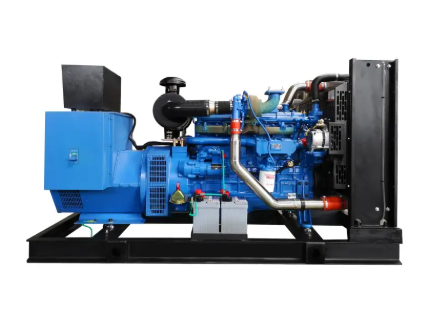Did you know that improper maintenance is the leading cause of diesel generator failures, accounting for over 40% of unexpected downtime incidents? For facility managers and business owners relying on backup power systems, neglecting proper maintenance doesn't just risk equipment failure—it threatens operational continuity and can lead to six-figure losses during power outages. Whether you're operating standard units or sophisticated customized generator sets, implementing a comprehensive maintenance program is crucial for ensuring reliability, extending equipment lifespan, and maximizing operational efficiency. This guide provides expert maintenance strategies that can reduce your operating costs by up to 30% while significantly improving system reliability.
Table of Contents
Why Diesel Generator Maintenance Matters More Than You Think
Daily and Weekly Maintenance Checklist
Monthly Inspection and Testing Protocols
Quarterly Comprehensive Maintenance Procedures
Annual Overhaul and Major Service Requirements
Special Considerations for Customized Generator Sets
Maintenance Documentation and Performance Tracking
When to Seek Professional Maintenance Support
Why Diesel Generator Maintenance Matters More Than You Think
Regular maintenance is not just about preventing failures—it's about optimizing performance and protecting your investment. Properly maintained diesel generators demonstrate:
30-40% longer operational lifespan compared to poorly maintained units
Up to 25% better fuel efficiency through optimal tuning and calibration
60% reduction in unexpected downtime through preventive maintenance
Significantly lower repair costs by addressing issues before they become major problems
For businesses using customized generator sets, maintenance becomes even more critical. These systems often incorporate specialized components and configurations that require specific care and attention to maintain peak performance.
Daily and Weekly Maintenance Checklist
Daily Visual Inspections (5-10 Minutes)
Fluid level checks: Engine oil, coolant, and fuel levels
Leak detection: Visual inspection for any fluid leaks
Battery condition: Terminal connection and charge status verification
Overall cleanliness: Removal of debris and obstructions
Weekly Comprehensive Checks (20-30 Minutes)
Air filter condition: Visual inspection and cleaning if necessary
Fuel quality assessment: Water separation and contamination check
Coolant concentration: Testing and adjustment as needed
General tightening: Verification of all accessible connections
Control panel review: Error code checking and system status verification
Insert maintenance checklist graphic: "Weekly Generator Maintenance Checklist" - ALT text: diesel-generator-set-weekly-maintenance-checklist
Monthly Inspection and Testing Protocols
Comprehensive System Testing
Load bank testing: 30-60 minute test under 50-75% load
Automatic transfer switch simulation: Testing backup activation sequence
Fuel system evaluation: Complete filtration system inspection
Cooling system performance: Thermostat and radiator function verification
Detailed Component Inspection
Drive belt tension: Adjustment and wear assessment
Electrical connections: Tightening and corrosion prevention
Exhaust system: Leak detection and component integrity
Mounting and vibration dampeners: Integrity and wear evaluation
Quarterly Comprehensive Maintenance Procedures
Major System Servicing
Oil and filter change: Using manufacturer-recommended fluids
Fuel filter replacement: Primary and secondary filter changes
Air filter replacement: Or cleaning for reusable systems
Coolant analysis: Testing for contamination and effectiveness
Performance Optimization
Injector testing: Spray pattern and pressure verification
Governor calibration: Speed and frequency regulation adjustment
Voltage regulation: Output quality and stability optimization
Battery load testing: Capacity and charging system verification
Annual Overhaul and Major Service Requirements
Comprehensive System Overhaul
Complete fluid replacement: Oil, coolant, and hydraulic fluids
Major component inspection: Cylinder compression testing
Electrical system review: Wiring insulation and connection integrity
Control system update: Software updates and calibration
Safety and Compliance Verification
Emissions testing: Ensuring compliance with local regulations
Safety system validation: All protection devices functional testing
Documentation review: Update maintenance records and service history
Regulatory compliance: Verification against current standards
Special Considerations for Customized Generator Sets
Customized generator sets often require specialized maintenance approaches due to their unique configurations:
Unique Maintenance Requirements
Specialized components: Specific maintenance procedures for custom parts
Advanced control systems: Specialized software and calibration needs
Integrated systems: Coordinated maintenance with connected equipment
Performance optimization: Custom tuning for specific operational requirements
Vendor-Specific Considerations
Proprietary parts: Availability and sourcing considerations
Specialized tools: Equipment required for proper maintenance
Technical expertise: Training requirements for maintenance staff
Warranty considerations: Compliance with manufacturer requirements
Working with your original customized generator sets supplier ensures access to specialized knowledge, genuine parts, and technical support specific to your equipment's unique configuration.
Maintenance Documentation and Performance Tracking
Essential Documentation Practices
Maintenance logs: Detailed records of all service activities
Performance data: Runtime hours, load cycles, and efficiency metrics
Parts inventory: Tracking of replaced components and service history
Warranty documentation: Service records for warranty compliance
Performance Monitoring Systems
Remote monitoring: Real-time performance tracking and alerting
Trend analysis: Identifying patterns and predicting maintenance needs
Cost tracking: Maintenance expense monitoring and optimization
Reliability metrics: Uptime performance and failure rate analysis
Insert performance tracking dashboard example: "Generator Maintenance Management System" - ALT text: diesel-generator-maintenance-performance-tracking-dashboard
When to Seek Professional Maintenance Support
While routine maintenance can often be handled in-house, certain situations require professional expertise:
Complex Service Requirements
Major overhauls: Engine rebuilds or major component replacement
Advanced diagnostics: Complex problem identification and resolution
System upgrades: Performance enhancements or technology updates
Compliance certification: Regulatory testing and documentation
Specialized Expertise Needs
Warranty service: Manufacturer-required maintenance procedures
Emergency support: 24/7 technical assistance and repair services
Training services: Staff education and certification programs
Performance optimization: Efficiency improvement consultations
For organizations with customized generator sets in stock or multiple units, considering a comprehensive maintenance contract with a qualified provider often proves more cost-effective than maintaining full in-house capabilities.
Conclusion and Next Steps
Implementing a structured maintenance program for your diesel generator sets is one of the most valuable investments you can make in operational reliability. The relatively small investment in regular maintenance pales in comparison to the potential costs of unexpected downtime, emergency repairs, or premature equipment replacement.
Remember that well-maintained generator sets don't just provide backup power—they deliver peace of mind, knowing that your operations will continue seamlessly regardless of utility power conditions. The most successful maintenance programs combine regular in-house attention with professional support for complex requirements.
Ready to Optimize Your Generator Maintenance Program? Our team of certified maintenance experts has served over 2,000 generator installations with a 99.8% reliability rate. [Contact us today for a free maintenance assessment and customized service proposal]. Let us help you develop a maintenance strategy that ensures your power systems are always ready when you need them most.
Table of Contents
- Table of Contents
- Why Diesel Generator Maintenance Matters More Than You Think
- Daily and Weekly Maintenance Checklist
- Monthly Inspection and Testing Protocols
- Quarterly Comprehensive Maintenance Procedures
- Annual Overhaul and Major Service Requirements
- Special Considerations for Customized Generator Sets
- Maintenance Documentation and Performance Tracking
- When to Seek Professional Maintenance Support
- Conclusion and Next Steps

